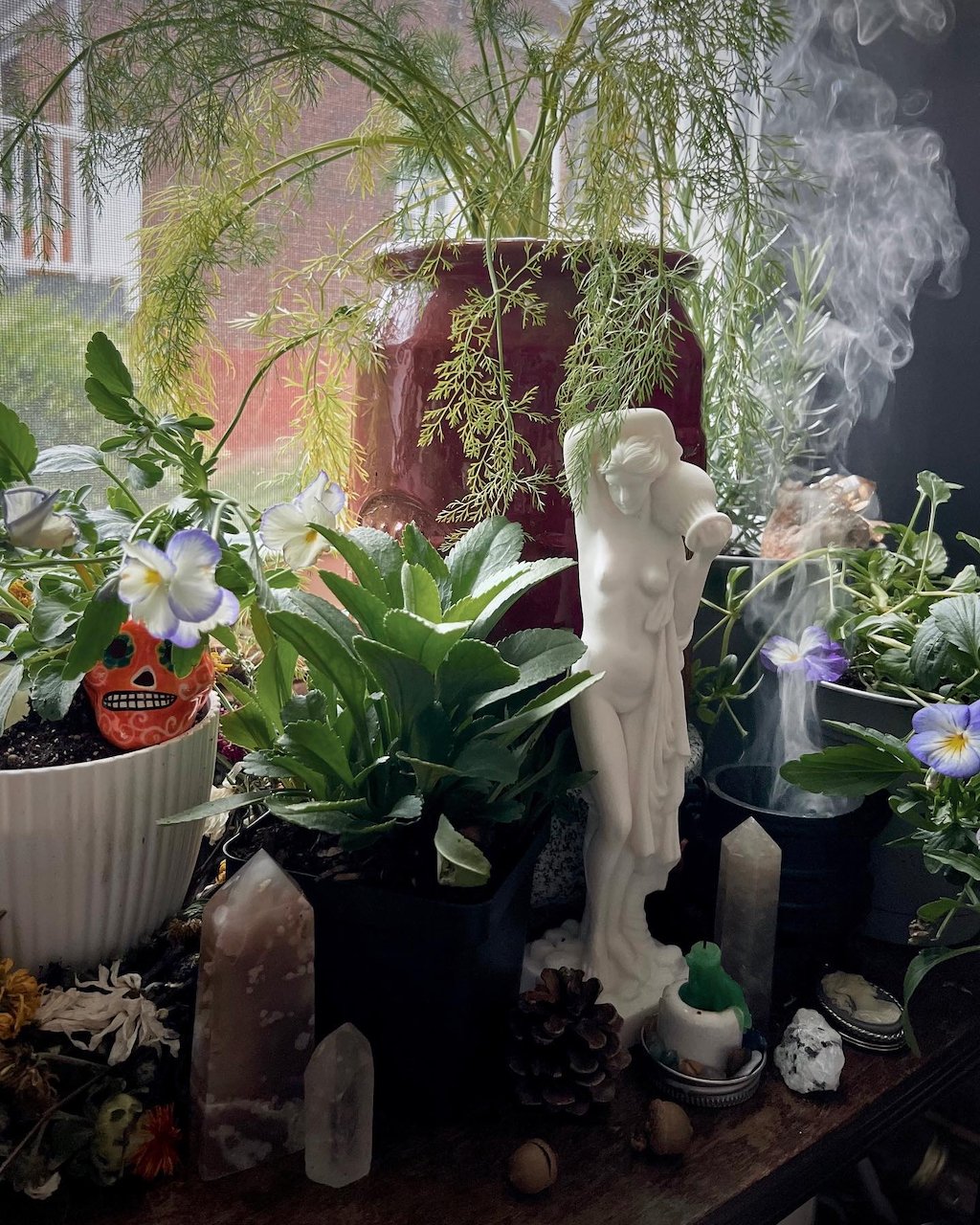Ophelia's flower garden
Follow: Instagram | TikTok | Facebook | Shop | Etsy | PatreonNote: This article was originally published by @gritchenwitch on Instagram. To learn about me and my practice, including more info on folk witchcraft, mountain magic, knot work, and hearthcraft, please visit gritchenwitch.com or join my Patreon at patreon.com/gritchenwitch.
Here’s a small garden I put together that’s loaded with plant magic. It’s based on the character Ophelia from Shakespeare’s Hamlet, which was my first introduction to flower correspondences.🌿
If you’re not familiar with the play, Ophelia, a young and beautiful noblewoman, is in love with Hamlet, the prince of Denmark. She’s warned by her father to reject his love, and Hamlet, an angry goth, loses his mind (“Get thee to a nunnery!”). He then accidentally kills her dad, sending Ophelia into a mad state of heartbreak and grief.
She appears again, wild and disheveled, talking in rhymes and handing out flowers to the royal family. Each of those flowers held a symbolic meaning of which the audience of the play was likely familiar.
For example, Ophelia hands fennel to the king. While fennel symbolizes flattery, it’s also a sign of male adultery (it wilts right after being picked). I like to imagine Ophelia handing the herb to the king and the crowd erupting like “OoOOOoOoo shit, was that fennel?!”
Here are the plants I added to my container based on Ophelia’s flowers:
Rosemary — Ophelia hands rosemary to her brother to aid in memory (namely pertaining to their father’s murder), but since the herb was used frequently in burial rites, it also foreshadows her death.
Pansy — Potent for love divination, the pansy is also closely connected to memory.
Daisy — Daisies represent innocence and love. Ophelia picks up a daisy and puts it back, a sign that innocence doesn’t exist there.
Violet — Ophelia distributes violets, a symbol of faithfulness and fidelity, and purposely skips over the queen. Super insulting.
Fennel — While a symbol of flattery and adultery, it also works well in purification.
After the drama, Ophelia climbs a willow tree and falls into a brook where she dies. Hamlet, in true goth form, openly mourns her death and claims he loved her more than forty thousand brothers ever could.
I’ll be interested to see how they do together. Shakespeare is packed with this stuff and prime for bibliomancy.

